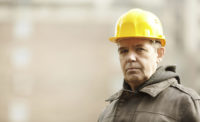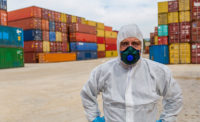 Four EU agencies, Cedefop, EU-OSHA, ETF and Eurofound contribute to a strengthened European Social Model.
Four EU agencies, Cedefop, EU-OSHA, ETF and Eurofound contribute to a strengthened European Social Model.
The European social model is more important than ever to help tackle the jobs crisis in Europe, participants were told at the joint EU agencies and European Parliament event on the European social model and competitiveness in Brussels on 25 September 2013.
Can Europe afford its social model?
The European social model relies on partnership, trust and consultation for finding fair and productive solutions. Enshrined in the EU treaties, social dialogue is an integral part of the system. The recurring question debated at the event was whether Europe can afford its social model and still be among the most competitive economies in the world.
"The theme of the seminar is most appropriate," said Xavier Prats Monné, Deputy Director-General for Education and Culture, European Commission, in his opening keynote speech. "The essence of the European social model is not just that solidarity and social protection are a good thing in themselves, but that, in order to achieve higher rates of employment, sustainable growth and competitiveness, the European Union must protect social integration and combat discrimination."
Overwhelmed by negative economic studies
"The work and contributions by the four EU agencies are more important than ever in these times of economic and employment crisis. We are overwhelmed by negative economic studies and reports in the media but, as policymakers, we need more evidence-based policy recommendations on employment creating measures and fewer aspirational statements of further austerity measures, says Pervenche Berès, Chair of the Committee on Employment and Social Affairs, European Parliament.
"Europe needs to repair its business model," says László Andor, Commissioner for Employment, Social Affairs and Inclusion, European Commission. "Solidarity within EU Member States can only be strengthened if solidarity between Member States improved. Therefore, there is an urgent need to step up social partners contribution to social dialogue debate, to provide a stable, transparent input required to the EU semester."
Getting the best out of people
Christian Lettmayr, Acting Director of the European Centre for the Development of Vocational Training (Cedefop) stressed that vocational education and training is essential for Europe’s competitiveness. He demonstrated how Europe must get the best out of its people in order to be competitive, calling on companies to increase work-based learning by taking on more apprentices. Enterprises have to become learning organisations, he added.
Ms Christa Sedlatschek, Director of European Agency for Safety and Health at Work (EU-OSHA) outlined that good health and safety is good for business, and safe and healthy workplaces are indeed more productive. She argued that small and medium sized enterprises (SMEs) and micro-business will create jobs and drive the economy, and that health and safety is an integral part of running a business independent of size.
Ms Madlen Serban, Director of European Training Foundation (ETF) provided clear evidence that improved education and training in the neighbouring countries of the EU enhances employability, competitiveness and entrepreneurship.
Mr Juan Menéndez-Valdés, Director of the European Foundation for the Improvement of Living and Working Conditions (Eurofound) provided compelling research findings that there is no inherent trade-off between a fair and a competitive society.
Joining forces
Four EU agencies - Cedefop, ETF, Eurofound and EU-OSHA – and the EP Employment and Social Affairs Committee joined forces on 25 September 2013 to examine and highlight how each one is contributing to a strengthened European Social Model – in its own unique way. Assessing how exactly the European Social Model can contribute to increased competitiveness, the agencies provided different perspectives in the context of the current crisis. Considering the challenges for Europe’s businesses, workers and young people, the agencies presented a multidimensional approach to a better and more sustainable future for the Europe of tomorrow.








